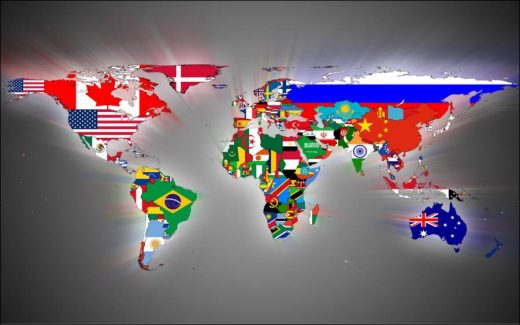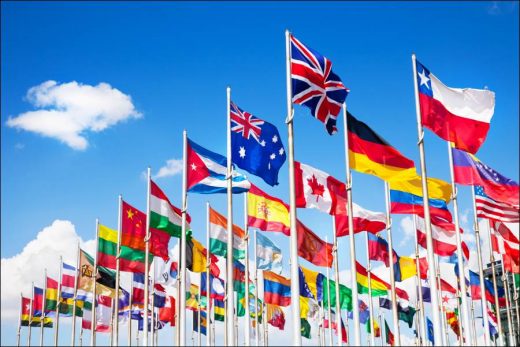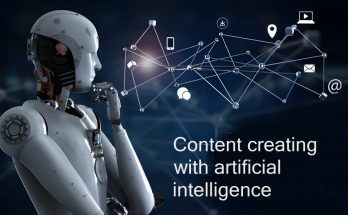What does the state really do? It’s time to ask this question. There’s no light or vision, right? For example, you set up the table exactly at night, you will have a family dinner or your favorite series will start, you have spread well on the seat, of course, children have homework, maybe exam week, but, uh! Damn electricity is gone. Human beings do not like desperation by nature, but it happened. And if there is no other light source around, you are left with that darkness. You suddenly fell into a darkness. The only color you see is black.
In a famous novel called Blind, where all citizens are blinded like an epidemic, the great writer Jose Saramago explains that the color that blind people see may be white, not black. But this is his claim, my intention is not to steal the word here and steal words to avoid the subject of the article. But it is a good opportunity to think, tiring the brain will increase our light while experiencing the physical confrontation of our lives, which are already isolated by the reality.
Now let’s see how the eye sees it. The source of seeing is the light. That light comes, hits the cornea, the cornea bends the light and focuses that light on the retina on the back of the eye. The task of the retina is to convert this light into electrical signals and transmit them to the brain through the optic nerve. The brain uses these signals to create an image. With the simplest definition, an image appears in our brains that we make sense of and “know” in our own reality.
This is what the eye sees.
What is it not seeing?
Or are people with good eyesight likely to be completely blind when they have a light source? How can this ‘state’ be explained?
Now, if the ophthalmologists are not angry, if they can make a law in the parliament, we will of course speak of ‘their way of seeing and their blindness’. Joke.
Here is the question I was wondering: If humans see, how does they not actually see?
But if we said the curtain is not a theater curtain, you know, the desire to close the eyelids, which are created by the emotions and thoughts that are embedded in our eyes and processed with a thousand kinds of devices, do not blink into ourselves to escape when they get too close.
It is almost an avoidance.
But why?
When Thomas Hobbes wrote his book Leviathan in 1651, he claimed that only a very strong, unique and undivided government or ruler could prevent civil war between people. Another claim is that “People make the state by making a contract between them because they live in fear when everyone is equal and free or when they are at war”. This claim is based on the state of nature, that is, the war that everyone is actually a wolf. Really?
This idea of Hobbes has been discussed very much, of course it is worth discussing, but when we look at our daily practice, I guess there is no need to be a scholar like Hobbes to say that one of our most basic motives is fear.
All the people, getting together, drinking and eating, met and agreed somewhere. A settled life, a safe life, away from danger and with property relations… Rules, laws, religion, nationalism etc. they were all produced and sold and rented and become believable and obedient. In order to protect themselves against each other and against other people, they set up the devices they call the state as the whole of the rules and institutions with the motive of survival, basically for the purpose of security.
While we are going through the difficult times we are in today, we see it very closely even when we look back at our own country. The images falling before our eyes tell us. We question who we are, how we continue our lives, our struggle for survival. Some of the people are selfish and sometimes hysterically mercilessly endeavoring to man’s labor, unemployed people, those who are now starving and absent.
But while these people have no income to keep their lives in their pockets, the device called the state has identity cards printed in the printing house, photographs on computer screens in flats, and birth records stored in archives. They are citizens of the ‘state’ who have these unrecognized and tied links.
They see that the structure they set up with a social contract does not care for them, and that their states do not see themselves when they are starving. They are oppressed. They are minorities, they think they are represented, but they are suppressed, digested, frightened by those who blind their eyes.
On the other hand, those who believe that all democratic channels are now corrupt in order to change this order in a state of mind that they have been accustomed to government even though they cannot rule, internalized the established order although they know the world. Those who cannot see the power to change, are desperate.
There is also those who do not see, despite the fact that they are light, swallow their eyes in response to the resulting image, lower the veil, be responsible, have been elected or delegated as representatives, but have the power to change the lives of the oppressed and desperate.
The state does not emerge from the people who lock themselves up in a big blindness and turn them into darkness.
Here we are.
Among those who say I want to be a state, but I want to be not. Between those who say that I want European law, but not if it is law, and those who say that I want to live as a human, and those who should shoulder those who violate the human rights law and freedoms. There are no more constitutions, no legislations, no rulers or no rulers. Desperate and oppressed are left.
It is also the class conflict of the fragmented left. Now, the ‘blind people’ have even turned off their lights so that they do not seem to take responsibility, we are left in the dark of our island half, at the table, at the desk, at school, at work. Maybe Hobbes is right. To become a state, a wave from the bottom is needed.
Views: 243




